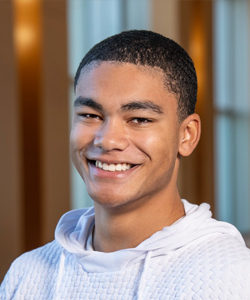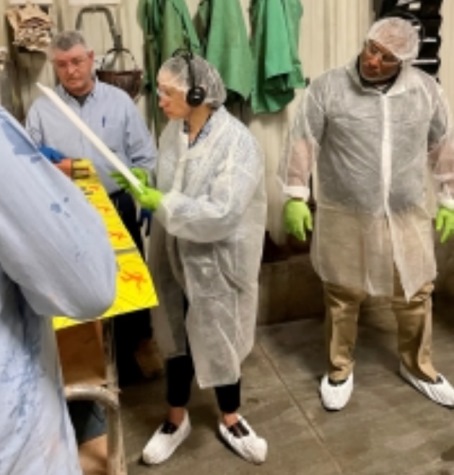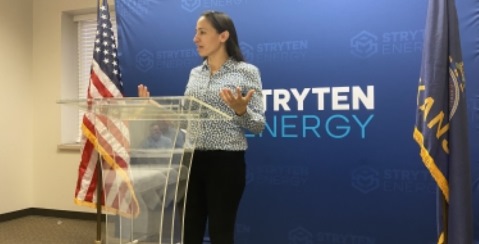Kansas House lawmakers failed to override a veto from the governor, spelling the end for a ban on transgender athletes in girls’ and women’s sports.
by Steve Koranda and Jim McLean, Kansas News Service
Topeka, Kansas — Kansas lawmakers failed Thursday to override Democratic Gov. Laura Kelly’s veto of a ban on transgender girls and women competing on girls’ and women’s sports teams.
The Senate successfully voted to override, but the failure in the House spells the end of the bill for this year. Republicans came close to the needed 84 votes in the House, but ended up with only 81 when a few members of the GOP didn’t support the plan.
It’s a repeat of last session, when Gov. Kelly vetoed a similar bill and lawmakers lacked the votes for an override.
The measure would have prohibited transgender athletes on girls’ and women’s teams at institutions like public grade schools, high schools and colleges.
Almost all Republicans supported the bill, saying it was about making sure that girls and women in sports do not face a disadvantage competing against transgender athletes.
“This is what we’re dealing with: male and female biology,” Republican Rep. Trevor Jacobs said on the House floor. “I can identify as many things, but that doesn’t make it so.”
Several Democrats pushed back against that, including Rep. Stephanie Byers, the first openly transgender lawmaker in Kansas history.
“It comes down to whether or not we recognize someone’s identity,” Rep. Byers said. “This is not my lifestyle. This is my existence.”
Rep. Byers said there may be only a single transgender athlete trying to compete on a girls’ sports teams in Kansas. The association that manages sports for grades 7 through 12 in Kansas told the Associated Press that it had been alerted of six or seven instances of transgender youth competing in sports, but couldn’t confirm how many of them were transgender girls.
Opponents of the bill said it discriminates against transgender youth and can make them feel more isolated.
“Trans kids just want to be accepted for who they are at their core,” Democratic Rep. Susan Ruiz said. “It’s not about playing sports. It’s not about fairness. It’s about singling out a group of kids.”
Opponents of the bill said that isolation could play a part in the higher rates of suicidal thoughts studies have found among transgender youth.
The few Republicans in the House who voted against the bill did not explain their reasons during debate on the plan.
In the Senate, the only dissenting Republican was Sen. Brenda Dietrich, a former Topeka school superintendent. She said she couldn’t support including grade schoolers in the ban.
“I’m just sad that this bill includes our youngest students,” Sen. Dietrich said in an emotional explanation of her vote to sustain the veto on Tuesday.
The plan would have required the Kansas State High School Activities Association, the Kansas Board of Regents and the boards governing municipal universities, community colleges and technical schools to adopt rules and regulations to enforce the ban.
Stephen Koranda is the news editor for the Kansas News Service. You can follow him on Twitter @Stephen_Koranda or email him at stephenkoranda (at) kcur (dot) org.
Jim McLean is the senior correspondent for the Kansas News Service and the Statehouse reporter for Kansas Public Radio. You can reach him on Twitter @jmcleanks or email jim (at) kcur (dot) org.
The Kansas News Service is a collaboration of KCUR, Kansas Public Radio, KMUW and High Plains Public Radio focused on health, the social determinants of health and their connection to public policy.
Kansas News Service stories and photos may be republished by news media at no cost with proper attribution and a link to ksnewsservice.org.



